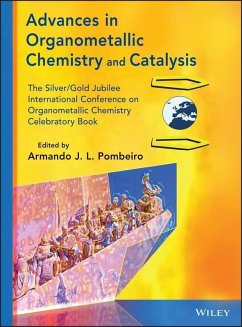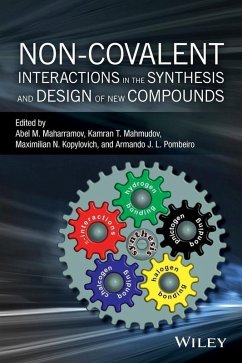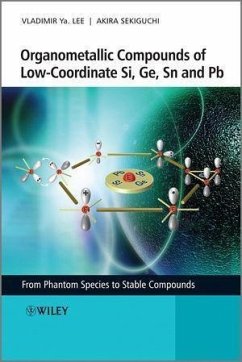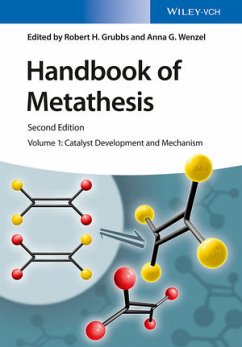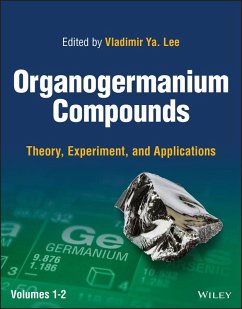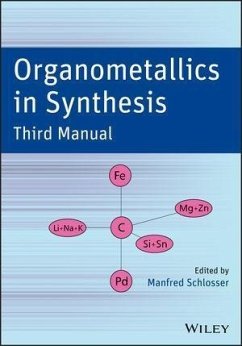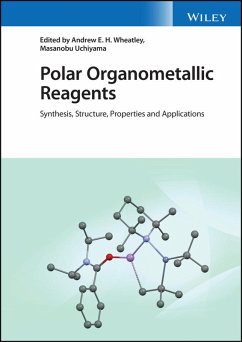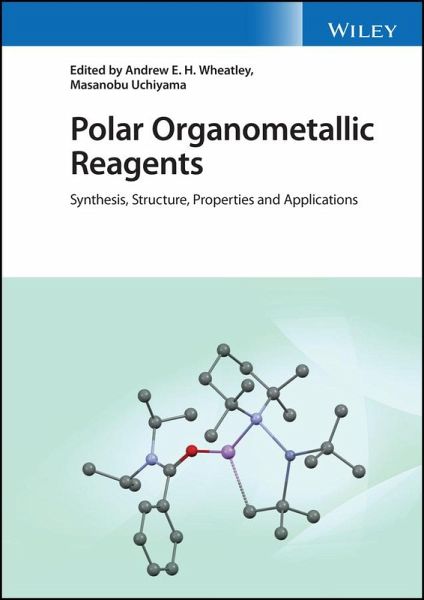
Polar Organometallic Reagents (eBook, ePUB)
Synthesis, Structure, Properties and Applications
Redaktion: Wheatley, Andrew E. H.; Uchiyama, Masanobu
Versandkostenfrei!
Sofort per Download lieferbar
151,99 €
inkl. MwSt.
Weitere Ausgaben:

PAYBACK Punkte
0 °P sammeln!
Outlines recent advances in the field of polar organometallic chemistry, particularly in the context of the emergent areas of synergic and cooperative species. Polar Organometallic Reagents provides a critical overview of developments in the field of modern polar organometallic chemistry. With a particular focus on the emergent area of synergic heterometallic reagents, this timely volume describes our attempts to understand recently developed polar organometallics and their application in a range of new directions. Contributions from leading researchers present new synthetic work and discuss r...
Outlines recent advances in the field of polar organometallic chemistry, particularly in the context of the emergent areas of synergic and cooperative species. Polar Organometallic Reagents provides a critical overview of developments in the field of modern polar organometallic chemistry. With a particular focus on the emergent area of synergic heterometallic reagents, this timely volume describes our attempts to understand recently developed polar organometallics and their application in a range of new directions. Contributions from leading researchers present new synthetic work and discuss recent advances in characterization techniques, synthetic applications, and mechanistic understanding of heterometallic complexes. In-depth chapters provide detailed information on fundamental, structural, and theoretical aspects of polar organometallic chemistry while articulating the need and rationale for the advent of new reagents. Topics include alkali and alkaline earth organometallics, synergy and cooperativity, cationic p-block clusters and other developments in main group catalysis, synthetic trends in alkenyl copper, ate complex and borylmetal chemistry, non-traditional reaction environments, and trends in developing greener processes. Designed to keep readers updated with the latest progress in the field, this much-needed book: * Includes an introductory chapter outlining the development of synergic bases and the logic behind their creation * Highlights the role of solid-state structural work in elucidating the bonding and reactivity displayed by modern polar organometallics * Examines the use of calculations in catalyst design and plotting more sustainable reaction pathways * Discusses modern trends in solution techniques that have achieved new insights into the structures of active species * Presents striking advances in the ease of handling of polar organometallics and the emergence of main group catalysis * Polar Organometallic Reagents is essential reading for researchers in chemical disciplines including synthetic inorganic and coordination chemistry, main group chemistry, organometallic chemistry, organic synthesis and catalysis.
Dieser Download kann aus rechtlichen Gründen nur mit Rechnungsadresse in A, B, BG, CY, CZ, D, DK, EW, E, FIN, F, GR, HR, H, IRL, I, LT, L, LR, M, NL, PL, P, R, S, SLO, SK ausgeliefert werden.




